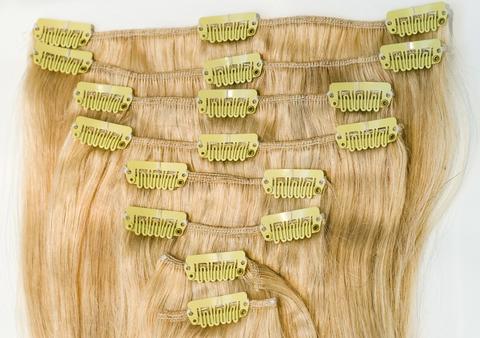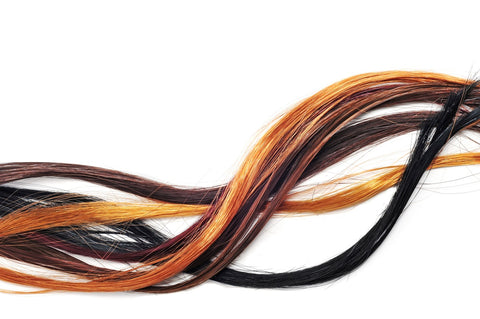
Virgin Hair vs Remy Hair: What's the Difference?
Share
If you've ever looked into hair extensions, you might have seen different extensions labeled "Remy hair", "100% Human Hair" and even "Virgin Remy hair". But if you're new to the world of hair extensions, there's a good chance that these terms don't really mean much of anything to you.
While 100 percent human hair is easy enough to figure out, other terms can seem to be nothing more than a marketing ploy for an upsell if you've never heard of them. However, Remy hair and virgin hair are highly priced and highly prized for a reason, with 100% Virgin Remy human hair extensions being the most prized of all. Here are a few things you should know!
Virgin and Remy Hair Come From One Place
When you opt for either virgin or Remy hair for your hair extensions, there's one thing that you'll know for sure: your hair all comes from the same source. That's because Remy hair requires the hair to all be flowing in the same direction and the cuticles to be maintained when the hair is donated. In order for the hair to be up to Remy standards, the hair is all removed from the donor at once to ensure that it's as easy to style as possible.
Conversely, non-Remy hair can come from a multitude of sources. It's genuine human hair, but it's usually pulled from hair brushes or swept off the floor of barber shops and then properly treated to ensure that it's ready to be used. The cuticles aren't maintained, and the hair won't all flow in the same direction. In short, it's a lot harder to tame than Remy hair is, which is why it's less expensive.

Remy Hair is Treated
When hair experts talk about virgin hair, they mean hair that's never been treated with chemicals of any kind. No dye, no bleach, no hard washes and no perm treatments have ever been done on virgin hair; it simply hasn't been treated with anything other than basic products like shampoo and conditioner. It's incredibly rare to find hair that's of virgin Remy quality, so it's the most expensive kind of hair there is. Conversely, non-virgin Remy hair has been treated at some point in the life of the donor. Maybe it was once blonde and has now been colored to become brown, or maybe the donor once wanted to lighten their hair's roots. In each case, the hair is still considered of Remy quality if it's properly treated when it's donated, but it can't be labeled as virgin.
Virgin Hair is Untouched
What this means is that virgin hair isn't rearranged when it's collected for a hair extension. Instead, virgin hair is collected and prepared as it comes for the eventual hair extension. It's not treated in any way, which means its integrity is preserved and it arrives for your extension as pure as it was before it was donated.
Non-virgin Remy hair, on the other hand, is rearranged into the eventual extension that it will become. As it's already been treated during its life with the donor, there's no worries about rearranging it into something that could damage its integrity. As long as its cuticles are maintained, it's good to go.
As with anything, the rarer something is, the more prized it's going to be, as long as it's of a high quality. In the case of 100% Virgin Remy human hair extensions, you won't find anything that looks better or is easier to style. If you're looking for hair extensions, it's worth the price every time. Talk to the team at Naked Virgin Hair to learn more!



